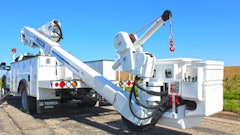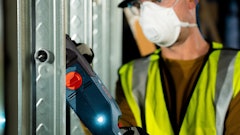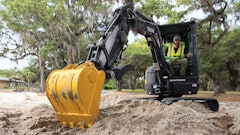IRVING, TEXAS - Hanson Pipe & Precast has determined that the production of the concrete used in its reinforced concrete pipe results in a significant 81 percent less carbon dioxide emissions than equivalent quantities of high density polyethylene and other plastic alternatives.
"A carbon footprint is a measure of our behavior and choices that we bestow upon the environment," said Richard Manning, president of Hanson Building Products North America. "I am proud to stand by products that have been positively serving our environment for hundreds of years."
Hanson was able to verify such claims with information published by industry leading experts including the Portland Cement Association, the National Renewable Energy Laboratory U.S. Lifecycle Inventory Database and the Plastics Division of the American Chemistry Council.
Hanson took a conservative stance during this process, as its approach was to ensure accurate results that truly displayed its products' effects on our environment.
"Manufacturing concrete is a simple procedure, with minimal steps that do not require a lot of energy," said Manning. "Several factors were taken into consideration that could alter results, but the most conservative value was decided upon after evaluating data from very credible sources."
The majority of the carbon dioxide emitted during the production of concrete does not occur at the manufacturing facility, but at the facilities that manufacture concrete's raw materials. The calculations performed by Hanson did not only encompass the carbon footprint of their manufacturing facilities, but also took into account the carbon emissions produced during the extraction and production of the raw materials they use.
The overall carbon footprint of Hanson's concrete products is reduced by using alternative, recycled materials and utilizing raw materials suppliers who employ new techniques to reduce their own carbon footprint.
"The American Water Works Association estimates that there are 876,000 miles of municipal water piping throughout the United States," added Manning. "This is a substantial amount of pipe, and it is imperative that the government, city officials and other decision makers be educated on the products they put in the ground in order to reduce our nation's overall carbon footprint."
One of Hanson Building Products' corporate strategies is continued focus on sustainability. The company is known throughout North America for excellent occupational safety, environmental stewardship, high quality standards and contributions to its local communities.
![Hcm Ax Landcros Dual Branded Logo[25]](https://img.forconstructionpros.com/mindful/acbm/workspaces/default/uploads/2025/11/hcmaxlandcros-dual-branded-logo25.Qhg3vUCjoK.jpg?auto=format%2Ccompress&bg=fff&fill-color=fff&fit=fill&h=100&q=70&w=100)



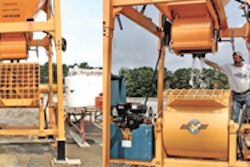

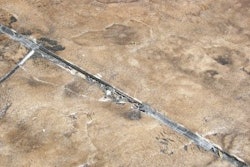




![Hcm Ax Landcros Dual Branded Logo[25]](https://img.forconstructionpros.com/mindful/acbm/workspaces/default/uploads/2025/11/hcmaxlandcros-dual-branded-logo25.Qhg3vUCjoK.jpg?ar=16%3A9&auto=format%2Ccompress&bg=fff&fill-color=fff&fit=fill&h=135&q=70&w=240)

